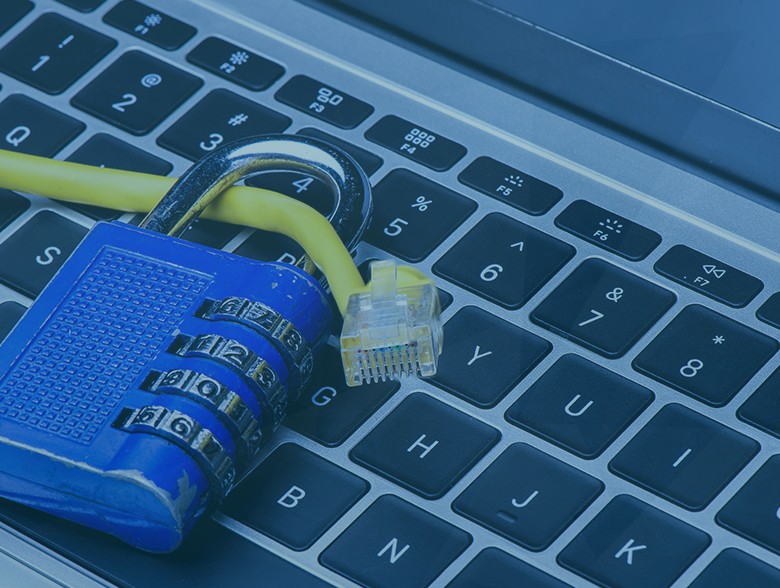Pre-Boot Authentication Is the Missing Half
By John Benkert, Cigent CEO and Co-founder
In an era where data security breaches are not just incidents but an event that can topple organizations, the importance of robust security measures has never been more desperately needed. This is particularly true for federal and sensitive commercial sectors like healthcare, where the stakes involve national security and patient safety. Among the myriad of security measures available, Full Drive Encryption (FDE) is often relied upon to secure data at rest (DAR). FDE alone however, is not adequate security if it is dependent on post-boot authentication (OS account login) to “unlock” the drive. These credentials can be compromised, and advanced threats can even bypass the login step altogether. To ensure FDE can effectively secure DAR, it should be tied to Pre-Boot Authentication (PBA). PBA stands out as a critical layer of defense, especially against the threats posed by compromised devices.
Understanding Pre-Boot Authentication
Pre-Poot Authentication is a security protocol that requires user authentication before a device’s operating system loads. This could involve biometrics, smart cards, or other tokens. Unlike traditional password-based methods, PBA ensures that the authentication process is tangible and directly linked to the user, making unauthorized access exponentially more challenging.
Applications in Federal Agencies
In federal agencies, where information can not only be classified but a leak can cost lives, the implementation of PBA is not just beneficial but imperative. The key applications include:
- Protection Against Espionage: Foreign and domestic threats often target federal agencies. PBA acts as a first line of defense, preventing compromised devices from being booted by unauthorized personnel, thus safeguarding sensitive information from espionage activities.
- Securing Communication Networks: Federal agencies often communicate over highly confidential networks. PBA ensures that only authorized devices can access these networks, mitigating the risk of eavesdropping or data interception.
- Compliance with Federal Regulations: Many federal agencies are bound by strict data security regulations. Implementing PBA helps in complying with these regulations, thereby avoiding legal repercussions and maintaining public trust.
But it’s not just federal agencies that need the security that PBA provides. Commercial entities should take advantage of the technology as well.
Applications in Healthcare and Other Data-Sensitive Environments
The healthcare sector not only deals with highly sensitive patient data, making it a prime target for cybercriminals, but most medical devices are connected to networks for monitoring and therefore are vulnerable to attacks as well. The application of PBA in healthcare serves several critical functions:
- Protecting Patient Confidentiality: Patient data is not only sensitive but also legally protected. PBA helps in safeguarding this data by ensuring that only authorized personnel can access devices containing patient information, thereby maintaining confidentiality and compliance with laws like HIPAA.
- Securing Access to Medical Devices: Many modern medical devices are connected to networks. PBA can be used to secure these devices, preventing unauthorized access that could lead to tampering or malfunction, potentially endangering patient lives.
- Mitigating Insider Threats: Healthcare facilities often have numerous staff and contractors moving in and out. PBA minimizes the risk of insider threats by ensuring that only designated individuals can access certain devices and information.
Addressing the Challenge of Rogue Devices
In both federal and healthcare scenarios, rogue devices – devices that have been compromised and are under the control of unauthorized entities – pose a significant threat. PBA addresses this challenge effectively by:
- Preventing Boot-Up of Compromised Devices: If a device has been tampered with or infected with malware, PBA can prevent it from booting up, thus stopping the threat in its tracks before it can infiltrate the network or access sensitive data.
- Enabling Immediate Response: In case a device is flagged during the PBA process, immediate action can be taken, such as quarantining the device, thereby preventing any potential spread of the threat.
- Maintaining Device Integrity: Regular PBA checks can ensure ongoing integrity of devices, making it easier to identify and address any anomalies that suggest compromise.
The application of Pre-Boot Authentication in federal and sensitive commercial applications like healthcare is more than just a security measure; it’s a fundamental necessity in the digital age. By providing a robust barrier against unauthorized access, especially in scenarios involving compromised devices, PBA plays a crucial role in safeguarding national security and protecting sensitive information. As threats evolve and the landscape of cyber warfare becomes increasingly complex, the implementation of PBA will undoubtedly become a standard, reinforcing the bastions of our most critical sectors against the ever-growing tide of cyber threats.
About the Author
 Cigent CEO and co-founder John Benkert served 20 years in USAF Intelligence and seven in the NSA, where he received the National Scientific Achievement Award for technological innovations in data security. He is the owner of CPR Tools, leading experts in data recovery, forensics, and destruction since 1987.
Cigent CEO and co-founder John Benkert served 20 years in USAF Intelligence and seven in the NSA, where he received the National Scientific Achievement Award for technological innovations in data security. He is the owner of CPR Tools, leading experts in data recovery, forensics, and destruction since 1987.
Recognizing the vulnerabilities in data security solutions including FDE and SEDs, Benkert set out to design a more secure approach to data protection – one that could not be defeated no matter the situation or adversary. He formed a team of experts in storage, data forensics, and cyber security. Securing funding from In-Q-Tel, the Cigent team has achieved Benkert’s vision of developing the most secure data security solution available. He is reachable at https://www.cigent.com/


